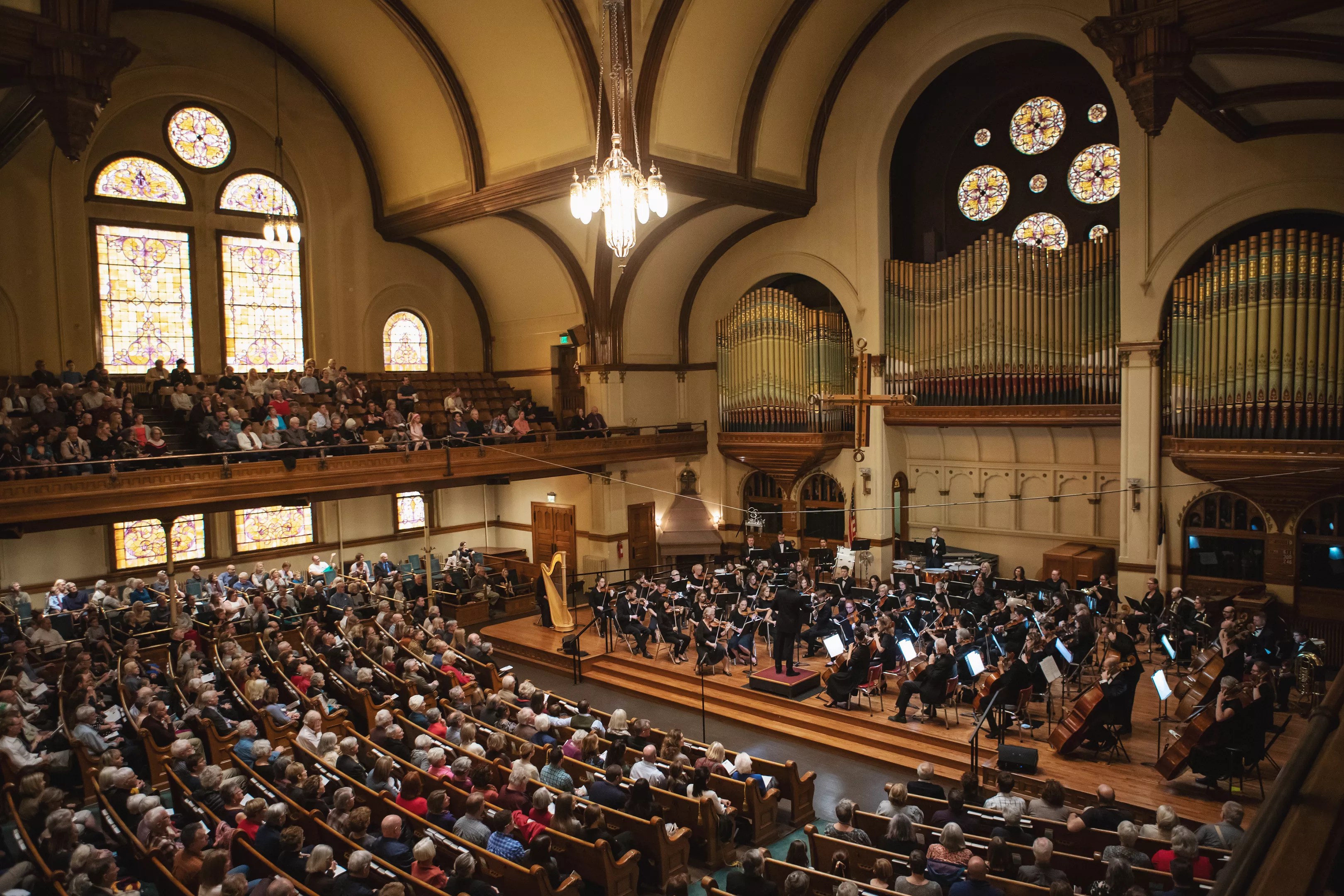
Amanda Tipton

Audio By Carbonatix
This spring, arts and humanities organizations nationwide received email alerts from the National Endowment for the Arts and the National Endowment for the Humanities that their funding would be rescinded as the federal agencies switch gears under the Trump administration.
According to the NEA email, its grantmaking policy priorities were being updated “to focus funding on projects that reflect the nation’s rich artistic heritage and creativity as prioritized by the President. Consequently, we are terminating awards that fall outside these new priorities.” The message added that Trump’s priorities are topics like AI, “the 250th anniversary of American independence” and empowering houses of worship.
An April 24 announcement from the NEH noted that the agency “has cancelled awards that are at variance with agency priorities, including but not limited to those on diversity, equity, and inclusion (DEI) and environmental justice.”
Colorado arts organizations lost around $400,000 in NEA funding this year. In July, Colorado Humanities executive director Maggie Coval told Westword that the loss of NEH funding was devastating to the organization and that Colorado Humanities was in danger of closing.
We’re thankful for you. Are you thankful for us?
We feel thankful for our staff and for the privilege of fulfilling our mission to be an unparalleled source of information and insight in Denver. We’re aiming to raise $50,000 by December 31, so we can continue covering what matters most to this community.
Help us continue giving back to Denver.
But one Denver nonprofit just turned down NEA money. The Denver Philharmonic Orchestra was offered an $8,000 award through the 2025 Colorado Creates FY26 Grant Program of Colorado Creative Industries, which is under the state Office of Economic Development. While the money is matched by CCI, the grant is funded by the NEA, which means the CCI monies are beholden to the rules of the NEA, says DPO executive director Roger Haak.
While DPO very much appreciates the work CCI is doing for Colorado, Haak says, he found that the restrictions provided by the NEA would dilute DPO’s current language around equity, diversity, inclusion and access.
“We welcome everybody; however, knowing that classical music itself as an institution is viewed as elitist, it makes it difficult to reach out to communities that otherwise don’t feel that they are welcome to the orchestra,” Haak explains. “We want to make sure that in our language, we’re able to authentically welcome everybody and all walks of life.”
Haak says that DPO feared being audited, having funds taken away or even facing criminal proceedings if it accepted the Colorado Creates grant and didn’t comply with NEA’s requirements for language, policy and procedural adjustments. He adds that DPO also wanted to stand by other local organizations that lost their NEA funding or will no longer have the opportunity to apply for it.
“Colorado Creative Industries is committed to supporting a Colorado for All so that all Coloradans can access and enjoy the state’s thriving arts and culture scene,” a spokesperson for CCI said when asked about DPO turning down the award. “Participating in the Colorado Creates program does not prevent an organization from engaging in outreach related to inclusivity and diversity.”
But instead of accepting the CCI grant, DPO has set up its own fundraiser to raise the $8,000. Thanks to an anonymous donor who stepped up to match the first $3,000 in donations, Haak says DPO was able to raise $6,000 in the first two and a half hours that the fundraiser was live; donations are still being accepted online.
“I think people in our community and people who know who we are and what we stand for share these same values and understand the urgency of what’s going on here and why classical music is valuable to the community at the price range and availability that we provide it,” Haak says, adding that DPO tickets are never more expensive than $30.
In addition to discounts for seniors, students, first responders and health-care workers, DPO also offers 100 pay-what-you-can tickets for every concert, in which the tickets start as low as $1, to serve people undergoing financial hardship.
It’s all part of DPO’s Take a Stand initiative, a program that does community outreach with organizations like Big Brothers Big Sisters and works with service animals in training.
“We’re partnering with Colorado Radio for Justice to get classical music recordings to individuals who were formerly incarcerated, and providing tickets to individuals who were formerly incarcerated,” Haak adds. “There are studies that show the recidivism rate goes from 60 percent to 3 percent when provided access to the arts. We’re taking a stand on how we can serve everyone in our community.”
In 2020, DPO created a gender inclusive dress code for its musicians. The organization has a history of being inclusive and forward-thinking. “We were founded by Antonia Brico, the first woman to conduct the New York Philharmonic,” Haak says, adding that she was “a woman in the 1940s, trying to be a conductor and being turned away and discriminated against solely because of her gender. So much of what we’re doing with this $8,000 challenge is knowing the life she lived and the walk she walked and wanting to honor her memory.”
“Don’t be deflected from your course,” Brico would say.
And so DPO is staying on track.